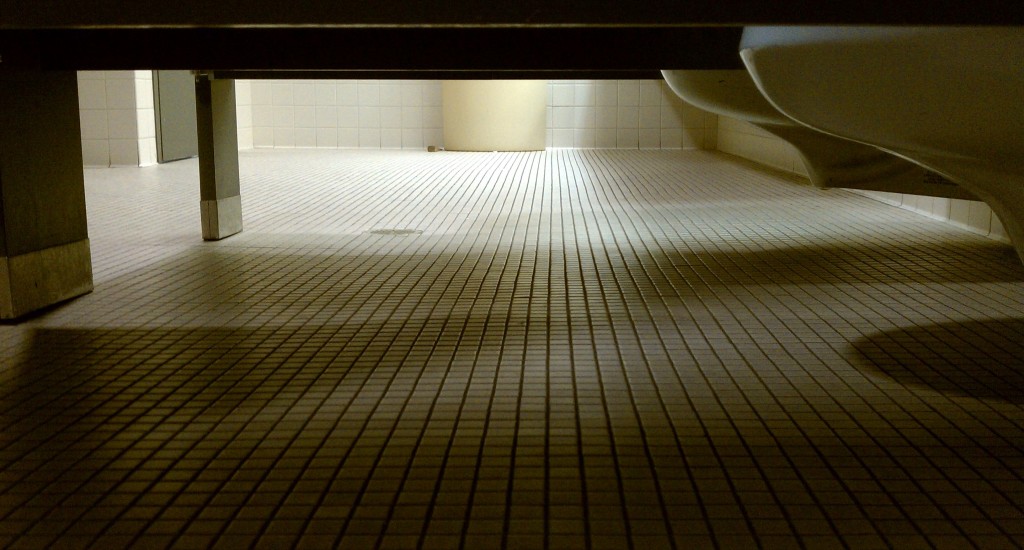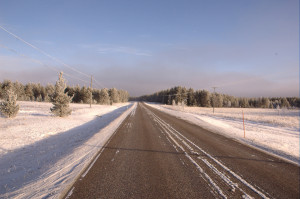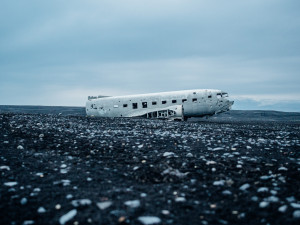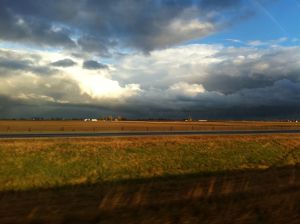I sometimes joke that I grew up thirty years before I was born. I was born in the early 80s, but most of my frequently watched movies and television shows are from decades earlier. As a child, my family rarely had cable, but we did have a large video collection. Most of the videos were carefully recorded from TV onto VHS tapes. Small white stickers with black numbers were dutifully placed on each tape and then entered into a handwritten index. We had indexes listing our movies both by alphabetical order and by number order.
This was mostly my mother’s influence. She loved the old movies and the shows, many created even before her childhood. They made her laugh, and Mom has always clung to the things that bring her joy. I recently took a vacation with a friend to Niagara Falls and she honored my desire to re-visit these childhood memories by driving an hour out of the way to see a giant mural of one of Lucille Ball’s famous scenes on the side of a building in her hometown of Jamestown, NY.
On Friday nights in my childhood, my two brothers and I would spread our sleeping bags on the patchwork-brown linoleum in the living room for family movie night. On the kitchen table Mom and Dad would put out Breyer’s vanilla ice cream, chocolate syrup, cool whip, and often some type of candy or sprinkles. We’d build our traditional Friday-Night-Sundae and sit on top of our sleeping bags — ready to laugh along as Jerry Lewis belts out a (rather catchy) song about beans in At War With The Army. Or, we would giggle for the hundredth time at Lucy and Ethel as they shoveled chocolates into their mouths. Sometimes we’d invite friends over; sometimes it was just us. There are dozens of movies (and television shows) in my head that I remember with smiles for the way they filled my childhood with laughter.
Other times, we’d watch the movies late into the night. My parents would delay bedtime and press play on an old favorite because the night was special. Once, I was laying on the couch, my head in my mother’s lap as she raked her fingers through my bangs. We were watching one of Martin and Lewis’ movies. I would glance up every time I heard her laugh to see the light in her eyes. There were days that it was hard for Mom to smile. Days where Depression did its best to keep her isolated and numb. But there were other days that stretched into the night where joy, and laughter, were present. Those were nights we celebrated and embraced the joy.
I used to wonder why we didn’t watch the movies on the sad days, so that they would bring the laughter. It took me into my young adult years to understand that the laughter came on the late nights because the clouds lifted, not because the movies penetrated them.
This Christmas my younger brother and I stood in our parents’ hallway and scanned the movie collection, laughing in recognition at some of our old favorites. Much of the family gathered around the television and put in Dean Jones’ Snowball Express (Dad’s favorite) and we all laughed along as Jones flew backwards down the mountain, on skis. A few days later we pulled out North Avenue Irregulars to keep us awake as we counted down to the New Year. Mom and my brother had tears in their eyes from their laughter as Cloris Leachman rammed her car into a mobster who had caused her to break her newly-manicured nails.
Those late night movie watching parties where Mom joined us in the laughter are treasured memories, but as an adult I think the work of joy is more evident in the every-Friday-night routine. Mom set up that routine and maintained it. Despite her own struggles, she made sure there was joy and laughter in the house for her kids. A joy that still pays off for us all these years later.
***************************************


 but her sister had already dropped her pants and planted herself on the toilet. I glared at her, “Just hurry up, okay?” My youngest recovered quickly, as she does, and crouched on the bathroom floor–she wanted to see the shoes of the person in the next stall. “Stop it!” I warned, “and don’t you dare touch that floor! I told you bathroom floors are dirty!”
but her sister had already dropped her pants and planted herself on the toilet. I glared at her, “Just hurry up, okay?” My youngest recovered quickly, as she does, and crouched on the bathroom floor–she wanted to see the shoes of the person in the next stall. “Stop it!” I warned, “and don’t you dare touch that floor! I told you bathroom floors are dirty!”


